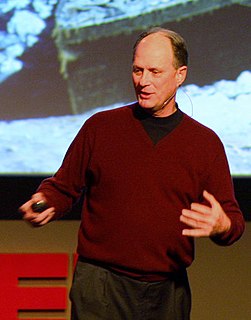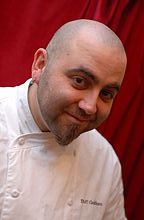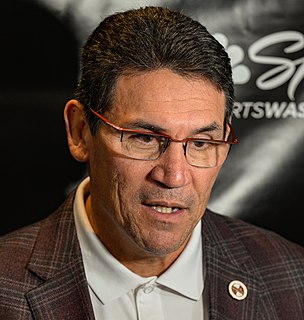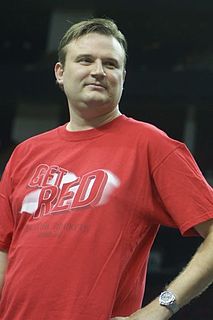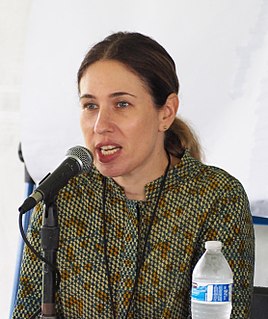A Quote by Robert Ballard
I'm a geophysicist and all my earth science books when I was a student, I had to give the wrong answer to get an A. We used to ridicule continental drift. It was something we laughed at. We learned of Marshall Kay's geosynclinal cycle, which is a bunch of crap.
Related Quotes
As a graduate student at Columbia University, I remember the a priori derision of my distinguished stratigraphy professor toward a visiting Australian drifter [a supporter of the theory of continental drift]. Today my own students would dismiss with even more derision anyone who denied the evident truth of continental drift - a prophetic madman is at least amusing; a superannuated fuddy-duddy is merely pitiful.
There's an internal coherence and logic to what they get from [Rush] Limbaugh, Glenn Beck, and the rest of these guys. And they sound very convincing, they're very self-confident, and they have an answer to everything - a crazy answer, but it's an answer. And it's our fault if that goes on. So one thing to be done is don't ridicule these people, join them, and talk about their real grievances and give them a sensible answer, like, "Take over your factories."
When you do calculations using quantum mechanics, even when you are calculating something perfectly sensible like the energy of an atomic state, you get an answer that is infinite. This means you are wrong - but how do you deal with that? Is there something wrong with the theory, or something wrong with the way you are doing the calculation?
A beloved student of mine told me she believed the earth was approximately 6,000 years old. She was smart, she was thoughtful, and she was wrong. But I couldn't discount her - I respected her too much. So I debated with her, using every bit of science and logic I had, but I still failed to convince her that the earth was billions of years old.
I learned to live many years ago. Something really, really bad happened to me, something that changed my life in ways that, if I had my druthers, it would never have been changed at all. What I learned from it is that today seems to be the hardest lesson of all. I learned to love the journey, not the destination. I learned that it is not a dress rehearsal, and that today is the only guarantee you get. I learned to look at all the good in the world and to try to give some of it back because I believed in it completely and utterly.
I think my philosophy has evolved over the years. I started teaching almost 15 years ago and I've learned that how one student learns is obviously much different than how another student learns and so I've had to figure out how to get through to people honestly without hurting their feelings - which is no easy task just in the scope of being a human being, much less in the classroom, but which is something that is more important to me now than it was when I was 30 - and to show them a path to improving.
